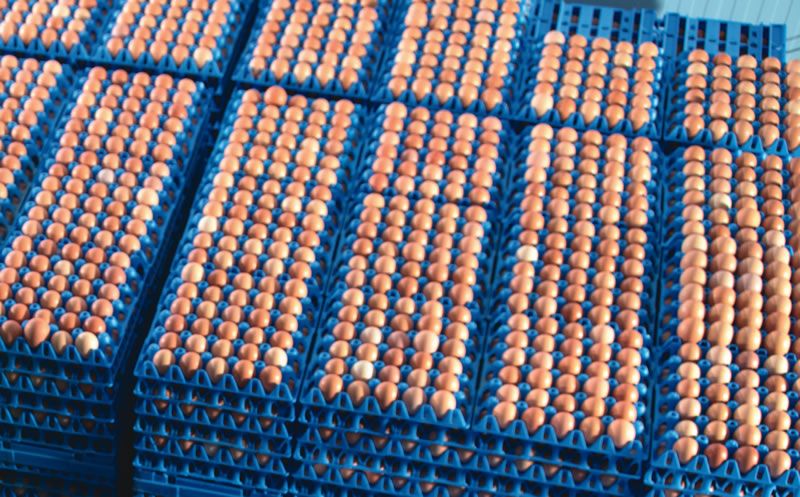
Egg industry leaders have demanded that British farming standards must be maintained despite growing pressure from US trade negotiators.
United States representatives have suggested on a number of occasions that the United Kingdom would need to relax its standards if it wanted to secure a post-Brexit free trade agreement with the US.
And Washington has now placed that demand in writing in a document outlining its negotiating objectives for a transatlantic deal.
The document says that the UK must 'remove expeditiously unwarranted barriers that block the export of U.S. food and agricultural products,' and that 'unjustified trade restrictions' must be removed in order to 'eliminate practices that unfairly decrease US market access opportunities.'
Defra Secretary Michael Gove has repeatedly insisted that the government will defend animal welfare and production standards despite US demands. =
He repeated his assurances on standards during an appearance at the Oxford Farming Conference. But he has so far refused to enshrine such assurances in legislation.
British farmers have raised serious concerns that the domestic industry could be undermined in the rush to secure trade deals with countries like the United States.
'Significant undercut'
Mark Williams, chief executive of the British Egg Industry Council (BEIC) has said research shows that only EU tariffs currently protect British egg products from lower priced and lower welfare equivalents from countries like the US, India, Argentina and Ukraine.
Mr Williams, who says that 16 per cent of the cost of producing a dozen or a kilo of eggs in the European Union comes from EU legislation on food safety, animal welfare and environmental protection, has warned that pursuing a free trade policy with such countries would result in British farmers being significantly undercut.
Following the publication of the document outlining the US position on a potential trade deal with the UK, the BEIC repeated its demand that post-Brexit imports into the UK should be required to meet the same standards as those of British producers.
“The BEIC’s view is that any imports into the UK must meet our high standards of food safety, animal welfare and environmental protection,” said Mark Williams.
“The UK egg industry is highly efficient, innovative and wholly responsive to consumer demand. We want British consumers to continue to enjoy British eggs and egg products - the safest eggs in the world, produced to world leading standards of animal welfare and environmental protection.”
He said: “During the last two decades the UK laying hen sector has been subjected to more stringent legislation as a result of societal demands. This has led to additional legislative costs (16 per cent of the total production cost of eggs at farm level (2016 data). It is of note that the USA does not have the same extensive legislation.
“On 1st January 2012, the EU/UK banned the use of conventional cages. By contrast, in the USA there is no federal legislation on animal welfare and laying hens can continue to be housed in conventional cages.
“BEIC believes that to allow imports that do not comply with UK standards would not only undermine legislation, but also be against the wishes of British consumers, who support high standards of animal welfare, and be contrary to government policy to further improve standards. What we seek is ‘fair trade’ and not ‘free trade’.”
Protecting UK standards
At the Oxford Farming Conference this year, Michael Gove, sought to assure his audience that the government would protect UK farming standards.
“If we are to maintain our own resilience and reputation for quality, that means we must maintain our own high environmental and animal welfare standards and not barter them away in pursuit of a necessarily short term trade-off,” he said.
But in the absence of a commitment to put his assurances in writing, conference delegates continued to press the issue.
The Secretary of State said he understood the concerns. “Going right back to discussions over TTIP, which preceded our decision to leave the European Union, one of the concerns that was raised then was the concerns specifically with regards to the United States of America that TTIP would mean we would have to lower some of our own standards and protections.”
He said: “I have been clear, though I know there is more that must be done, that we don't intend to lower our standards. We don't intend to take a backward leap through uncertainty for the consumer and it would also undermine the strength of our own domestic production and also the reputation it enjoys.
“There are different ways we can provide the reassurance and the guarantees and the security that Minette and others rightly ask for and we will be coming forward with more proposals about how we might do that,” he said.
